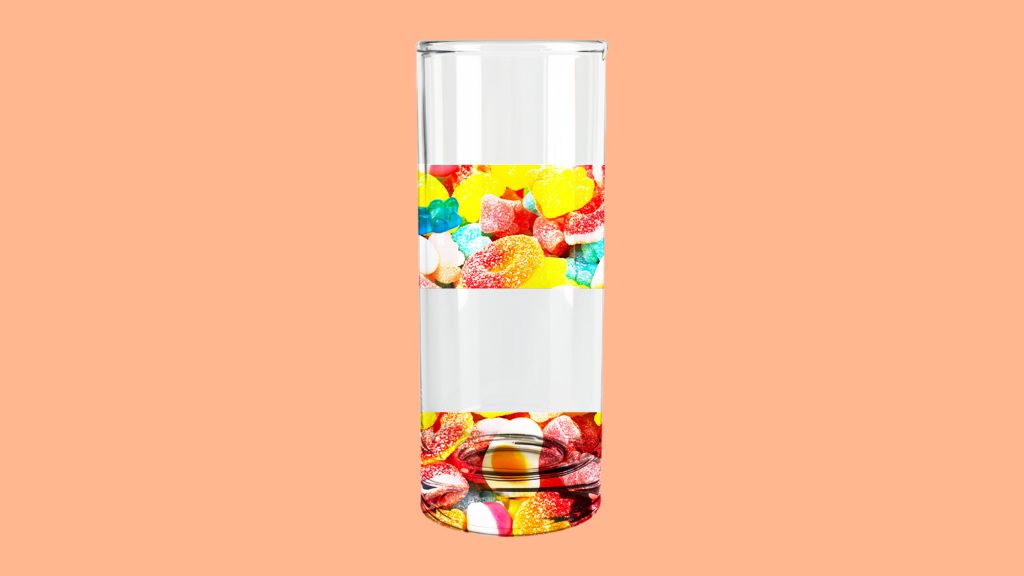On top of hours of ingredient prep, mixing cocktails, counting tips, and closing tabs, bartendending requires countless verbal interactions every day. And one customer request that comes up more than others is for “a drink that’s not too sweet.”
In all fairness, the trauma that comes with getting burned by an overly sweet drink can be long-lasting. Perhaps a dive bar Marg with an egregious dollop of store-bought sweet-and-sour mix resulted in the headache of a lifetime. Maybe an Espresso Martini riff looked good on paper, but wound up being a cavity in a cup that made the night go sideways. Or in extreme cases, there’s a chance some folks wrote off cocktails bars for decades after living through the era of Harvey Wallbangers and Tequila Sunrises. Whatever the case may be, nobody likes a cocktail that’s overly saccharine or cloying.
At the same time, bartenders never aim to make cocktails that are “too” anything. The goal is always achieving balance, even if that equates to balanced sweetness or bitterness. Therefore, asking a bartender for a drink that’s not too sweet could come across as a roundabout way of asking, “Can you please do your job well?” Of course, few customers would be so rude to actually ask that question, and almost all bartenders understand that their clientele really just want a drink that they’re going to like regardless of how requests are worded.
To find out how to navigate the conversation without reverting to the played out, somewhat arbitrary call for a drink that’s “not too sweet,” we chatted with Alec Kossoff, bartender at NYC’s Monkey Thief.
Quantifying Sweetness
“I, like other bartenders, have a lot of pride in the work that I do,” Kossoff says. “And when somebody warns me about something before I even make them a drink, I can have a negative reaction to that, but that’s not to say that I’m discounting what the guest is asking for.”
When a customer asks for a cocktail that’s “not too sweet,” it might give the person behind the stick some semblance of what they want, but it generally will just lead to more questions.
“Sweetness isn’t a linear thing,” Kossoff says. “I could ask you what you think sweet is and you could say candy. And then I could ask someone else the same thing and they might say pineapple. I think that most guests are well intentioned, but they just don’t know how to communicate what they’re actually trying to say.”
It’s also important to note that while balance is always the goal in cocktail creation, some drinks are inherently sweeter than others. For example, Monkey Thief has a drink on its menu called Tea Service made with shochu, coconut rum, matcha, mint, pandan, and lavender foam. For all intents and purposes, it’s a dessert cocktail, but according to Kossoff, hours of daily prep go into making sure it’s balanced. Think of it like making a good pastry or chocolate bar. It’s all about nuance.
How Bars Can Curb the Request
Although some guests struggle with articulating what they want, bars don’t always do themselves — or their guests — any favors by making their menus tough to understand.
“I can tell you that there’s St-Germain in a drink, or I can tell you that there’s elderflower in it. I can put Sfumato Rabarbaro on a drink menu, or I can put rhubarb,” Kossoff says. “If you do arcane things and put arcane things on your drink menu, then you’re going to have to deal with guests who really don’t understand what you’re doing.”
In short, the more questions answered on the menu, the fewer questions bartenders will have to deal with.
“One of the things I got taught when I was just starting to bartend was that it requires a lot of trust,” Kossoff says. “Reasonable skepticism is always welcome, but the guest has to put a lot of faith in you to make them a drink that they’re gonna like.”
The same rule applies to fine dining. No sensible person would go into a Michelin-starred restaurant and ask for a dish that’s not too salty. There should be a level of understanding that, at world-class establishments, the guest is in good hands. And at the end of the day, most bartenders simply want their guests to have a good time, feel comfortable, and enjoy whatever drink they order.
“There’s nothing worse as a bartender than seeing somebody get a drink, make a weird face, put it down, and not have another sip,” Kossoff says. “If you don’t like your drink, I’m always happy to make you a new one.”
The article Stop Asking Your Bartender for a Drink That’s ‘Not Too Sweet’ appeared first on VinePair.
